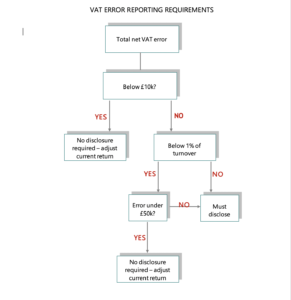Latest from the courts.
In the First-tier Tribunal (FTT) case of Netbusters (UK) Limited the issue was whether the supply was the standard rated provision of sporting facilities, or an exempt right over land.
Background
Netbusters organised football and netball leagues and provided the playing facilities (artificial pitches for football and courts for netball). The hire of the facilities was for a defined period of time and no other party had the right to access the pitches during those times. The hire could be a block, or one-off booking. The appellant contended that the supplies were exempt via VAT Act 1994, Sch 9, Group 1 – “The grant of any interest in or right over land or of any licence to occupy land…” However, item 1 Note (para m) excludes the “the grant of facilities for playing any sport or participating in any physical recreation” in which case they become standard rated. To add complexity, Note 16 overrides the exception for sporting facilities (so they are exempt) if the grant of the facilities is for:
“(a) a continuous period of use exceeding 24 hours; or
(b) a series of 10 or more periods, whether or not exceeding 24 hours in total, where the following conditions are satisfied—
(i) each period is in respect of the same activity carried on at the same place;
(ii) the interval between each period is not less than one day and not more than 14 days;
(iii) consideration is payable by reference to the whole series and is evidenced by written agreement;
(iv) the grantee has exclusive use of the facilities; and
(v) the grantee is a school, a club, an association or an organisation representing affiliated clubs or constituent associations.”
I have a simplified flowchart which may assist if you, or your clients, need to look at these types of supplies further.
Another issue was whether Netbusters’ league/tournament management services which were, in principle, available independently of pitch hire, but in practice rarely were provided in that way, were separate supplies or composite. There was a single price payable for both pitch hire and league management services.
The appellant contended that its supplies were exempt via VAT Act 1994, Sch 9, Group 1 or that Revenue and Customs Brief 8 (2014): sports leagues, is applicable which states “HMRC accepts that the decision of the FTT is applicable to all traders who operate in circumstances akin to Goals Soccer Centres plc. This includes traders who hire the pitches from third parties such as local authorities, schools and clubs…”
HMRC argued that there was no intention to create a tenancy and the agreements between the parties did not provide for exclusive use of the premises, so the supplies fell to be standard rated.
Decision
The appeal was allowed; the supply was a singe exempt supply because the objective character of the supplies were properly categorised as the granting of interests in, rights over or licenses to occupy land. It was found to be significant Netbusters (or its customers) had the ability to exclude others from the pitches during the period of the matches.
It was therefore unnecessary to consider whether Netbusters’ supplies grants of facilities satisfy all the conditions set out in Note 16 (although the FTT were disinclined to do this anyway as a consequence of the way respondent prepared its case).
Commentary
The issue of the nature sporting rights has a long and acrimonious history both in the UK and EU courts. Any business providing similar services are advised to review the VAT treatment applied.

